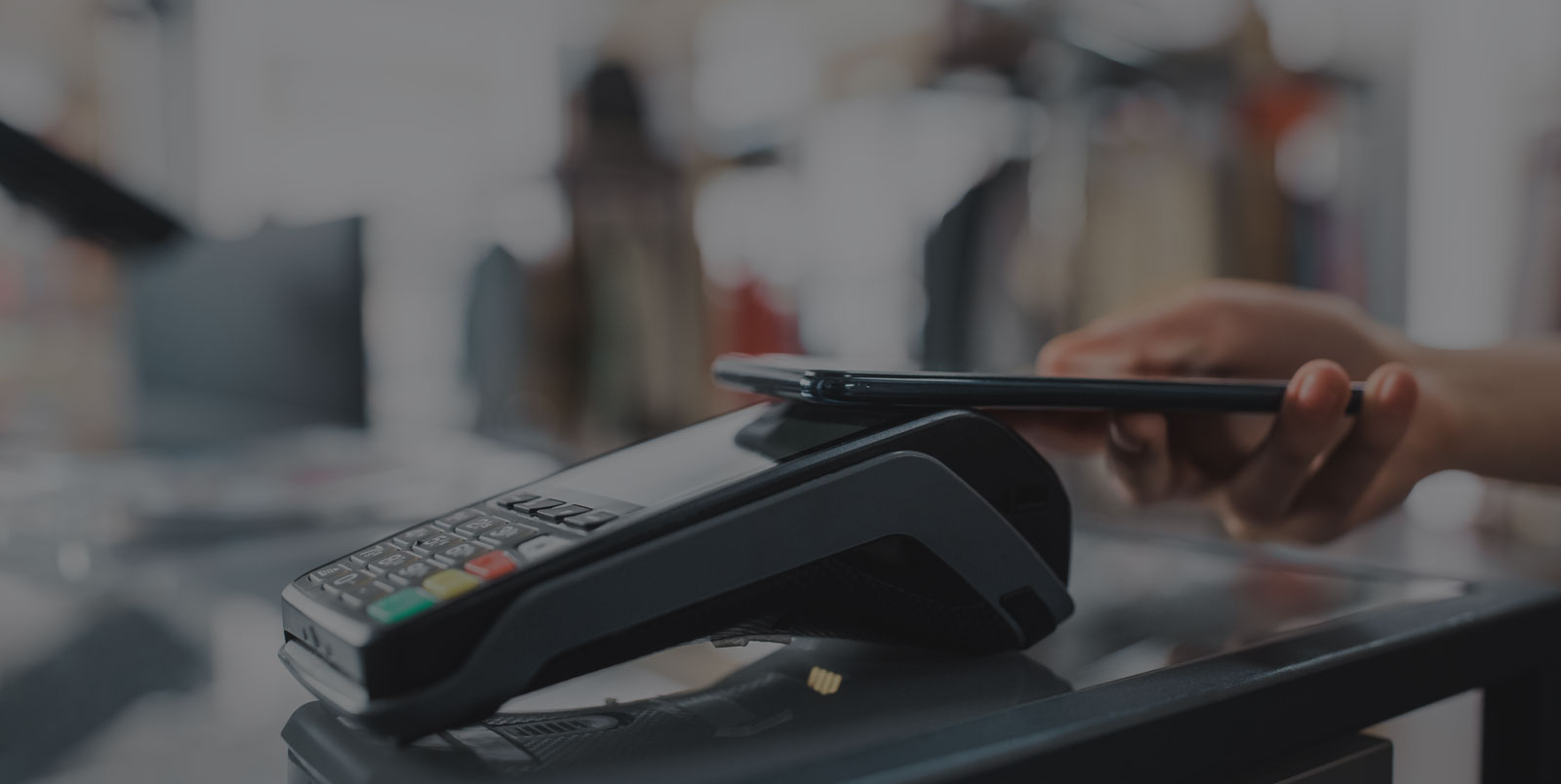
By Cindy Gardea August 20, 2024
In today’s digital age, credit repair businesses play a crucial role in helping individuals improve their credit scores and financial well-being. These businesses assist clients in identifying and resolving errors, inaccuracies, and negative items on their credit reports. To efficiently manage the complex processes involved in credit repair, businesses need robust and reliable tools. One such tool that has revolutionized the industry is the Point of Sale (POS) system.
A POS system is a software and hardware solution that enables businesses to process transactions, manage inventory, and streamline various operational tasks. While traditionally associated with retail and hospitality industries, POS systems have found their way into credit repair businesses due to their ability to enhance efficiency, accuracy, and customer experience. This article will delve into the role of POS systems in credit repair businesses, exploring their key features, benefits, and considerations for implementation.
How POS Systems Streamline Credit Repair Processes
- Efficient Client Onboarding: The first step in credit repair is gathering client information and assessing their credit reports. POS systems streamline this process by providing a centralized platform to collect and store client data securely. This eliminates the need for manual paperwork and reduces the chances of errors or lost documents.
- Credit Report Analysis: POS systems can integrate with credit bureaus and credit monitoring services, allowing credit repair businesses to access and analyze client credit reports efficiently. These systems can automatically identify errors, inaccuracies, and negative items, saving time and effort for credit repair specialists.
- Task Management and Workflow Automation: Credit repair involves multiple tasks, such as drafting dispute letters, tracking progress, and following up with clients and credit bureaus. POS systems offer task management and workflow automation features, enabling businesses to assign tasks, set deadlines, and track progress in real-time. This ensures that no crucial steps are missed and enhances overall efficiency.
- Document Management: Credit repair businesses deal with a significant amount of paperwork, including client agreements, dispute letters, and supporting documentation. POS systems provide document management capabilities, allowing businesses to store, organize, and retrieve documents easily. This eliminates the need for physical storage and reduces the risk of misplacing important files.
- Communication and Collaboration: Effective communication and collaboration are essential for credit repair businesses to provide quality service to their clients. POS systems often include built-in communication tools, such as email integration and messaging features, facilitating seamless communication between credit repair specialists, clients, and credit bureaus. This ensures that everyone involved is on the same page and can address any concerns promptly.
Key Features and Functionalities of POS Systems for Credit Repair Businesses
- Client Management: POS systems offer comprehensive client management features, allowing businesses to create and maintain client profiles, track their progress, and store relevant documents securely. These systems can also generate reports and analytics to provide insights into client performance and business growth.
- Credit Report Integration: POS systems can integrate with credit bureaus and credit monitoring services, enabling businesses to access and analyze client credit reports seamlessly. This integration eliminates the need for manual data entry and ensures accurate and up-to-date information.
- Dispute Letter Generation: Generating dispute letters is a crucial aspect of credit repair. POS systems often include templates and tools to automate the process of drafting dispute letters. This saves time and ensures consistency in the language and format of the letters.
- Task Management and Workflow Automation: POS systems offer task management features that allow businesses to assign tasks, set deadlines, and track progress. Workflow automation capabilities streamline the credit repair process by automating repetitive tasks, such as sending reminders or updating client profiles.
- Reporting and Analytics: POS systems provide businesses with valuable insights through reporting and analytics features. These features generate reports on client performance, revenue, and other key metrics, helping businesses make data-driven decisions and identify areas for improvement.
The Benefits of Implementing POS Systems in Credit Repair Businesses
- Increased Efficiency: POS systems streamline credit repair processes by automating tasks, eliminating manual paperwork, and providing a centralized platform for data management. This increases efficiency, allowing credit repair businesses to handle more clients and deliver faster results.
- Improved Accuracy: Manual data entry and paperwork are prone to errors, which can have significant consequences in credit repair. POS systems reduce the risk of errors by automating data entry, generating accurate dispute letters, and providing real-time access to credit reports.
- Enhanced Customer Experience: POS systems enable credit repair businesses to provide a seamless and personalized experience to their clients. With features like automated progress updates, secure document sharing, and integrated communication tools, businesses can keep clients informed and engaged throughout the credit repair process.
- Scalability and Growth: As credit repair businesses expand, managing a growing client base becomes challenging without the right tools. POS systems offer scalability, allowing businesses to handle more clients, streamline operations, and accommodate future growth.
- Regulatory Compliance: Credit repair businesses must comply with various regulations, such as the Fair Credit Reporting Act (FCRA) and the Credit Repair Organizations Act (CROA). POS systems often include compliance features, such as audit trails and data encryption, ensuring businesses meet regulatory requirements and protect client information.
Choosing the Right POS System for Your Credit Repair Business
When selecting a POS system for a credit repair business, several factors should be considered:
- Integration Capabilities: Ensure that the POS system can integrate with credit bureaus, credit monitoring services, and other software solutions used in credit repair. Seamless integration enhances efficiency and reduces manual data entry.
- Customization Options: Look for a POS system that allows customization to meet the specific needs of a credit repair business. This includes the ability to create custom dispute letter templates, tailor workflows, and generate reports based on unique business requirements.
- Scalability and Flexibility: Consider the scalability and flexibility of the POS system. It should be able to handle a growing client base and adapt to changing business needs. Look for cloud-based solutions that offer scalability and remote access.
- User-Friendliness: The POS system should be intuitive and easy to use for both credit repair specialists and clients. A user-friendly interface reduces the learning curve and ensures efficient adoption of the system.
- Cost and Support: Evaluate the cost of the POS system, including any upfront fees, monthly subscriptions, and additional charges for integrations or support. Additionally, consider the level of support provided by the POS system vendor, including training, technical assistance, and software updates.
Integrating POS Systems with Existing Credit Repair Software
Many credit repair businesses already use specialized software solutions to manage their operations. When implementing a POS system, it is essential to ensure compatibility and integration with existing software. This integration allows for seamless data transfer, eliminates duplicate data entry, and enhances overall efficiency.
POS system vendors often provide integration options or APIs (Application Programming Interfaces) that enable businesses to connect their POS system with other software solutions. It is crucial to consult with the POS system vendor and the provider of the existing credit repair software to ensure a smooth integration process.
Ensuring Data Security and Compliance with POS Systems in Credit Repair Businesses

Data security and compliance are paramount in credit repair businesses, as they deal with sensitive client information. When implementing a POS system, businesses must ensure that the system adheres to industry-standard security measures and complies with relevant regulations.
- Data Encryption: POS systems should encrypt client data both during transmission and storage. This ensures that sensitive information remains secure and protected from unauthorized access.
- Access Controls: Implement access controls within the POS system to restrict user access based on roles and responsibilities. This prevents unauthorized individuals from accessing or modifying sensitive client data.
- Audit Trails: POS systems should maintain detailed audit trails that track user activities within the system. This allows businesses to monitor and review any changes made to client data, ensuring accountability and compliance.
- Compliance with Regulations: Credit repair businesses must comply with regulations such as the FCRA and CROA. POS systems should provide features and functionalities that support compliance, such as the ability to generate required disclosures and maintain records as mandated by the regulations.
Training and Support for POS Systems in Credit Repair Businesses
Implementing a new POS system requires proper training and ongoing support to ensure its effective use. POS system vendors should provide comprehensive training materials, including user manuals, video tutorials, and webinars, to familiarize credit repair specialists with the system’s features and functionalities.
Additionally, vendors should offer technical support to address any issues or questions that may arise during the implementation and daily use of the POS system. This support can be in the form of a dedicated support team, a helpdesk, or a knowledge base accessible to users.
Frequently Asked Questions (FAQs) about POS Systems in Credit Repair Businesses
Q.1: What is a POS system, and why is it beneficial for credit repair businesses?
A POS system is a software and hardware solution that enables businesses to process transactions, manage inventory, and streamline operational tasks. It is beneficial for credit repair businesses as it enhances efficiency, accuracy, and customer experience by automating tasks, providing centralized data management, and integrating with credit bureaus and credit monitoring services.
Q.2: How does a POS system streamline credit repair processes?
A POS system streamlines credit repair processes by facilitating efficient client onboarding, automating credit report analysis, managing tasks and workflows, and providing document management capabilities. These features eliminate manual paperwork, reduce errors, and enhance overall efficiency.
Q.3: What key features should credit repair businesses look for in a POS system?
Credit repair businesses should look for POS systems with features such as client management, credit report integration, dispute letter generation, task management, workflow automation, reporting and analytics, and communication tools. These features enable businesses to efficiently manage clients, credit reports, tasks, and communication.
Q.4: How can POS systems enhance the customer experience in credit repair?
POS systems enhance the customer experience in credit repair by providing automated progress updates, secure document sharing, and integrated communication tools. These features keep clients informed and engaged throughout the credit repair process, resulting in a seamless and personalized experience.
Q.5: How can credit repair businesses ensure data security and compliance with POS systems?
Credit repair businesses can ensure data security and compliance with POS systems by implementing data encryption, access controls, audit trails, and compliance features within the system. Additionally, businesses should choose POS systems that adhere to industry-standard security measures and comply with relevant regulations.
Conclusion
POS systems have become indispensable tools for credit repair businesses, enabling them to streamline processes, enhance efficiency, and provide a superior customer experience. These systems offer features such as client management, credit report integration, dispute letter generation, task management, and reporting and analytics. By implementing a POS system, credit repair businesses can increase efficiency, improve accuracy, and ensure compliance with regulations.
When choosing a POS system, credit repair businesses should consider integration capabilities, customization options, scalability, user-friendliness, cost, and support. It is also crucial to ensure compatibility and integration with existing credit repair software. Data security and compliance should be prioritized, with features such as data encryption, access controls, and audit trails implemented within the POS system.
Proper training and ongoing support are essential for the successful implementation and use of a POS system. Credit repair businesses should seek POS system vendors that provide comprehensive training materials and technical support. By leveraging the power of POS systems, credit repair businesses can efficiently manage their operations, handle more clients, and deliver exceptional results in the pursuit of financial well-being.
